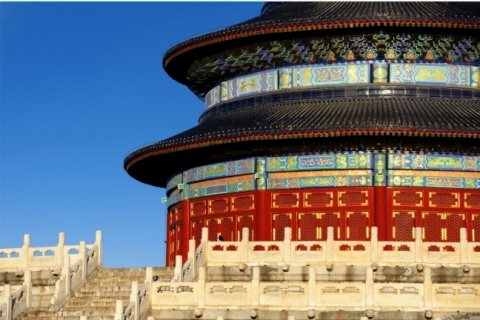This is a financial promotion for The First Sentier China Strategy. This information is for professional clients only in the UK and EEA and elsewhere where lawful. Investing involves certain risks including:
- The value of investments and any income from them may go down as well as up and are not guaranteed. Investors may get back significantly less than the original amount invested.
- Currency risk: the Fund invests in assets which are denominated in other currencies; changes in exchange rates will affect the value of the Fund and could create losses. Currency control decisions made by governments could affect the value of the Fund's investments and could cause the Fund to defer or suspend redemptions of its shares.
- Single country / specific region risk: investing in a single country or specific region may be riskier than investing in a number of different countries or regions. Investing in a larger number of countries or regions helps spread risk.
- China market Risk: although China has seen rapid economic and structural development, investing there may still involve increased risks of political and governmental intervention, potentially limitations on the allocation of the Fund's capital, and legal, regulatory, economic and other risks including greater liquidity risk, restrictions on investment or transfer of assets, failed/delayed settlement and difficulties valuing securities..
- Concentration risk: the Fund invests in a relatively small number of companies which may be riskier than a fund that invests in a large number of companies.
- Smaller companies risk: Investments in smaller companies may be riskier and more difficult to buy and sell than investments in larger companies.
For details of the firms issuing this information and any funds referred to, please see Terms and Conditions and Important Information.
For a full description of the terms of investment and the risks please see the Prospectus and Key Investor Information Document for each Fund.
If you are in any doubt as to the suitability of our funds for your investment needs, please seek investment advice.

China-US trade tensions: A blessing in disguise
We believe trade tensions between the US and China will be an ongoing issue. Over the years, China has become a rather large part of the global economy and as a result, we expect to see more policies from the US designed to limit China’s economic rise.
In terms of the percentage of GDP to the US, or the trade imbalance, China now is where Japan was in the late ‘80s. The US is again in a political and economic wrestling match with its biggest rival – this was once Japan and now it is China.
As such, there are historical precedents for the current political climate. In the 1980s the US levied high tariffs on Japanese car imports in a bid to protect its own home-grown car manufacturers. However, the impact of trade sanctions on the Japanese economy could be seen as positive in some respects. It forced companies to streamline their production efficiencies and improve product innovation in order to remain competitive.
Toyota, for example, remains the world's largest car manufacturer today. Despite the trade sanctions in the ‘80s, Toyota managed to maintain its status as an industry leader and used local resources to support its global expansion. Today, it also produces cars in the US.
Toyota’s manufacturing process has one of the highest productivity levels in the industry. It adopts a “just-in-time” concept, with manufacturing equipment that can be easily set up to make different components as needed. This allows the company to remain nimble and react quickly to customer demand. Additionally, smaller lot sizes and faster communication on the assembly line tends to mean better quality products, as production mistakes can be quickly picked up and corrected.
From a political standpoint, we believe conflicts between China and the US will continue to arise, whether on exports and trade or other geopolitical issues. That said, we believe these issues primarily affect market sentiment, rather than China’s actual economy – China’s economy is predominantly domestically driven and its exports contribute only a tiny part to GDP.
Not only that, despite various trade barriers imposed by the US, China’s export numbers continue to beat expectations. In fact, the Covid-19 pandemic has affected non-Chinese manufacturing bases more than those in China. As global demand recovers, China has become a reliable manufacturing source for most markets around the world.
Before the pandemic, there were concerns that China might lose its manufacturing edge due to labour shortages. However, that concern is slowly diminishing. Tesla for example, built its largest factory in the world in Shanghai last year and it now exports cars from China to Europe – this reflects China’s high manufacturing competitiveness.
In conclusion, we believe that the US-China trade war should not lead to long-term headwinds for Chinese companies, in fact quite the opposite. In the medium-to-long term, we believe Chinese companies will be forced to strengthen their core competencies and those that are able to adapt to the new norm should emerge stronger over time, despite trade sanctions.
Note: Reference to specific securities (if any) is included for the purpose of illustration only and should not be construed as a recommendation to buy or sell the same. All securities mentioned herein may or may not form part of the holdings of FSSA Investment Managers’ portfolios at a certain point in time, and the holdings may change over time.